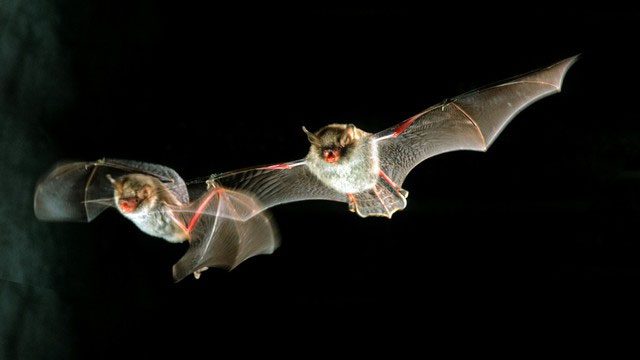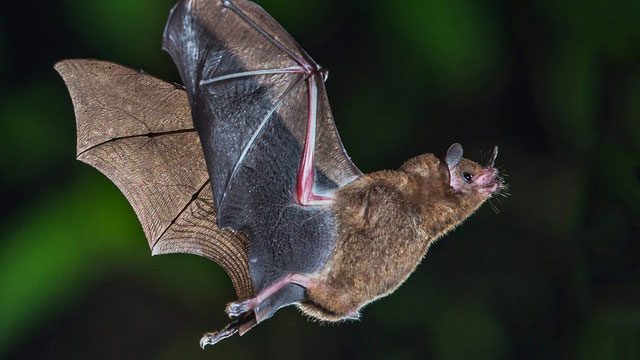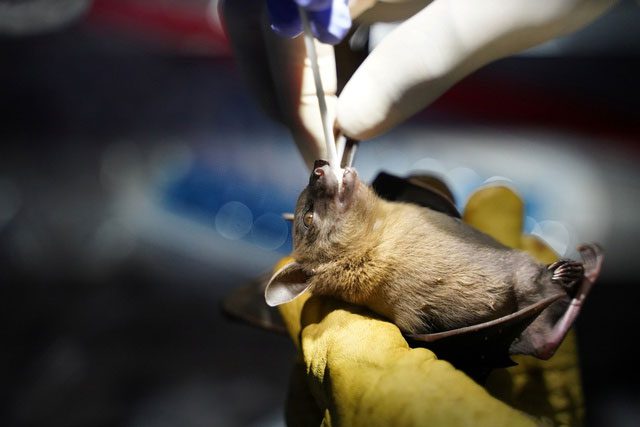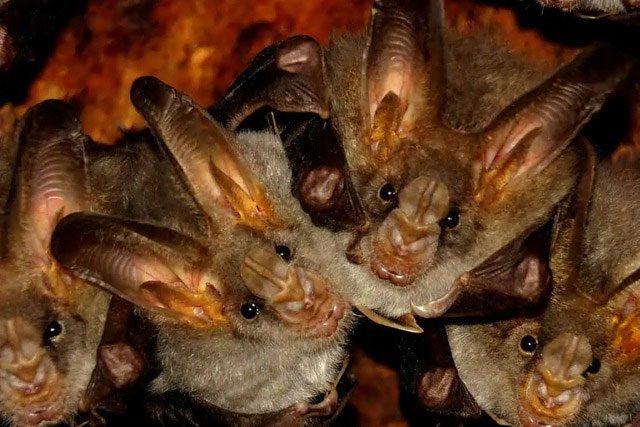Bats possess a remarkable ability to harbor dangerous viruses without falling ill. However, if disturbed, the viruses in bats can jump to humans.
So far, scientists have yet to discover the true cause behind the outbreak of the Corona virus. Bats are one of the main suspects, and some studies suggest that the pathogen source of Covid-19 may originate from bats. This is significant because bats are the source of many pathogens belonging to the Corona virus family.
For example, a report from the National Institutes of Health (NIH) states that the viruses responsible for the SARS-CoV-1 pandemic in 2003 and the MERS-CoV outbreak in 2012 both originated from bats.

Bats are well-known as natural hosts for various viruses such as Ebola and rabies, and it may be necessary to mention SARS-CoV-2, which caused the COVID-19 pandemic! After the outbreak, bats became targets in some regions. This is considered a significant mistake! A study conducted in Peru in 2009 showed that large-scale killings did not reduce rabies incidence. On the contrary, these activities increased contact between hunters and bats; and if infected animals are caught and taken elsewhere, they would also promote the spread of the virus within the population!
In the case of Covid-19 caused by SARS-CoV-2, there is strong evidence indicating its ancestral origins in bats. This is supported by the fact that SARS-CoV-2 shares significant genetic similarities with bat coronaviruses, as highlighted in a 2021 study on the defensive capabilities of bats as hosts.
Interestingly, bats are involved in approximately 54% of all known single-stranded RNA Corona viruses, emphasizing their role in spreading these viruses. And besides Corona viruses, bats also pose other public health risks.
Now, a new study claims that disturbing bats and their habitats may lead to more pandemics, making it crucial to leave bats undisturbed.

Since 1940, about 100 new viruses have emerged. According to research, nearly a quarter of viruses emerged due to the destruction of animals’ natural habitats (especially forests) replaced by human farms, towns, and mines.
Bats are major sources of pathogens due to their unique biological and ecological characteristics. They are highly mobile mammals with a wide geographic distribution. Bats have a special immune system that allows them to coexist with various viruses. This immune capability enables bats to serve as reservoirs for many pathogens, including Corona viruses. These factors, combined with the frequent interactions between bats and other animals, including humans, increase the likelihood of transmission to other species.
You might be surprised to learn how many dangerous pathogens bats can carry. Besides numerous Corona viruses, bats are also hosts for rabies, Ebolavirus, Hendra and Nipah viruses, Marburg filoviruses, among many others. This is all thanks to bats’ unique ability to carry dangerous viruses in their bodies without becoming ill.
According to a 2021 study, “64 million years of adaptive evolution have shaped bats’ immune system to balance defense and tolerance, resulting in a unique ability to function as ideal hosts for viruses.”

From 2004 to 2014, despite the frequent emergence of the Ebola virus in various West African countries, it appeared more in areas with higher deforestation rates. The bats that lost their habitats (natural hosts of the virus) were forced to approach human-populated areas to forage on fruit trees and infect humans.
Human activities, including agriculture, mining, hunting, production, consumption, and the sale of bat meat, have brought our two species closer together. Additionally, there are visits to bat caves as tourists, where humans come into contact with bat bodily fluids and waste. All this exposure increases the risk of virus transmission from bats to humans or from bats to other animals (including pets) and then to humans.
In fact, according to the new study, by halting all the above activities and simply allowing bats to remain as undisturbed as possible, humans can significantly reduce the likelihood of another pandemic.
The study authors note: “A global ban is needed, whereby humanity agrees to leave bats alone, not to try to drive them away or destroy them, but to provide them with the necessary habitats and live without human disturbances.”

Bats play a vital role in supporting ecosystems.
In reality, bats are not only the only flying mammals. They also play a supportive role in ecosystems by actively pollinating various crops and playing a crucial role in controlling insect and mosquito populations.
According to the U.S. Fish and Wildlife Service, bats save the country $3 billion each year just by eating insects. Moreover, fruit-eating bats are responsible for up to 95% of seed dispersal in some tropical forests.
The authors of this study argue that leaving bats and their habitats undisturbed will ensure the smooth functioning of such valuable ecosystem services. Additionally, it will help control pandemic-causing viruses.
And the least we can do right now is to respect bats and their homes.
The study was published in the journal The Lancet Planetary Health.


















































